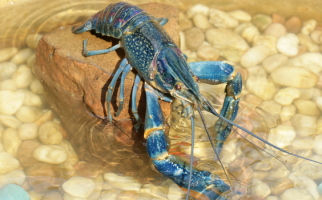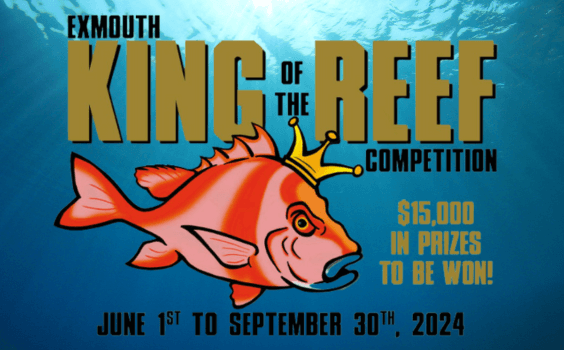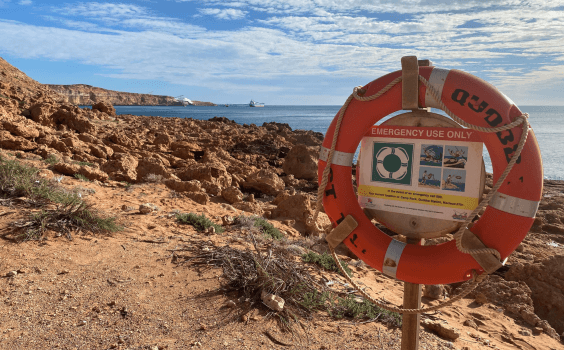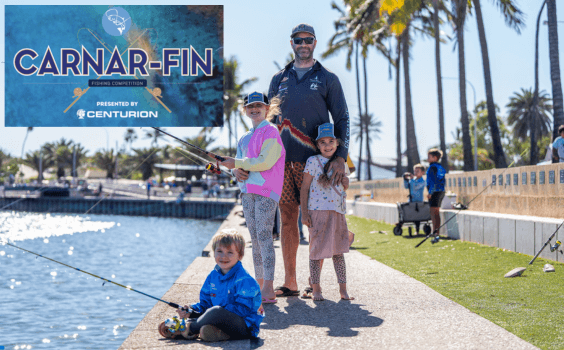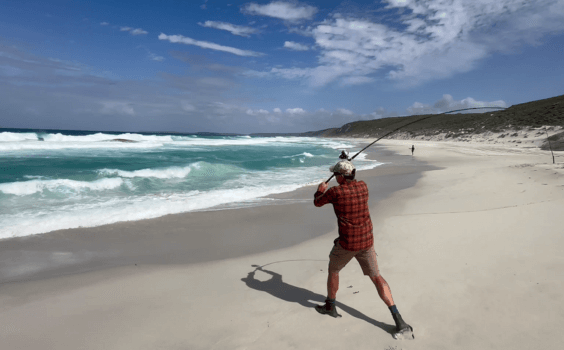Redclaw might look and taste similar to their delicious southern freshwater cousins, but unlike marron they are not native to Western Australia and are classified as a pest species.
Not only are they invasive, but they are also exceptionally adaptable to tough environments with the ability to survive out of the water for up to 48 hours. It means they can move freely and modify river environments including physical habitats, food-web structures and water quality, while displacing native species through predation and competition.
It is why Recfishwest is targeting increased recreational fishing opportunities for redclaw to manage and monitor the spread of this crayfish, providing recfishers with better education on the species and improved measures on catching them, so they can do their part to help the environment with the added incentive of taking home a delicious feed!
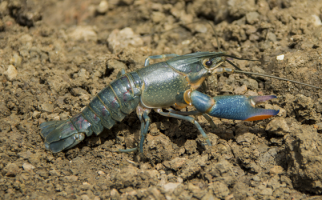
“Recfishwest believes a more coordinated approach is needed in WA to help stem the distribution and impact of redclaw. The two key components of a new approach are better community education and allowing more fishers to target redclaw while reducing the chances of by-catch of other native species,” said Recfishwest CEO Dr Andrew Rowland.
“We are making the case to DPIRD to legalise effective, wildlife-friendly fishing gear for redclaw for more northern regions of WA which which avoids the entrapment of fish, turtles or other native animals throughout the Gascoyne, Pilbara and Kimberley regions.”
“This would be a win-win scenario as recreational fishers can target a delicious species while directly reducing the ecological impacts of redclaw through these northern freshwater ecosystems.”
Recfishwest will continue to keep the recreational fishing community updated of any changes in regulations for redclaw crayfish fishing throughout our Gascoyne, Pilbara and Kimberley regions. If you catch redclaw, send pictures to DPIRD and make note of when and where you caught it, including GPS coordinates if possible.
Please dispatch all the redclaw you catch and do not return any to the water or move them around to other locations. If you catch redclaw, the FishWatch number to report them is 1800 815 507, or people can email aquatic.biosecurity@dpird.wa.gov.au.
Click here for a rundown on the current legal practices for catching redclaw crayfish in WA.
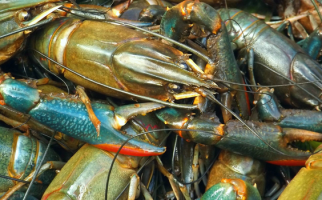
Redclaw fact file
Growing up to 25 centimetres in length with a mottled blue-green colouration, they are tolerant of a wide variety of habitats, from fast flowing rivers to still billabongs. The females are also able to spawn up to 1,000 eggs multiple times per year, meaning the population can multiply rapidly and become self-sustaining.
They eat a wide variety of prey including small aquatic invertebrates, molluscs and aquatic plants. This diverse diet means native north-western aquatic animals such as fish and turtles are competing with redclaw for food.
As a result, it is recommended redclaw crayfish are not to be released if caught.
They are widely considered a freshwater delicacy with the texture and flavour of their flesh compared favourably with other marine crustaceans, with their sweet-flavoured meat containing low levels of fat, cholesterol, and salt.
Over the past two decades, redclaw crayfish have rapidly spread west from their natural habitat of north-east Queensland and the Northern Territory. They are now distributed throughout a number of sites in the Pilbara region, including the Karijini and Millstream National Parks, the Fortescue River, Newman and Lake Kununurra. They have also been detected in the Harding Dam near Karratha.
